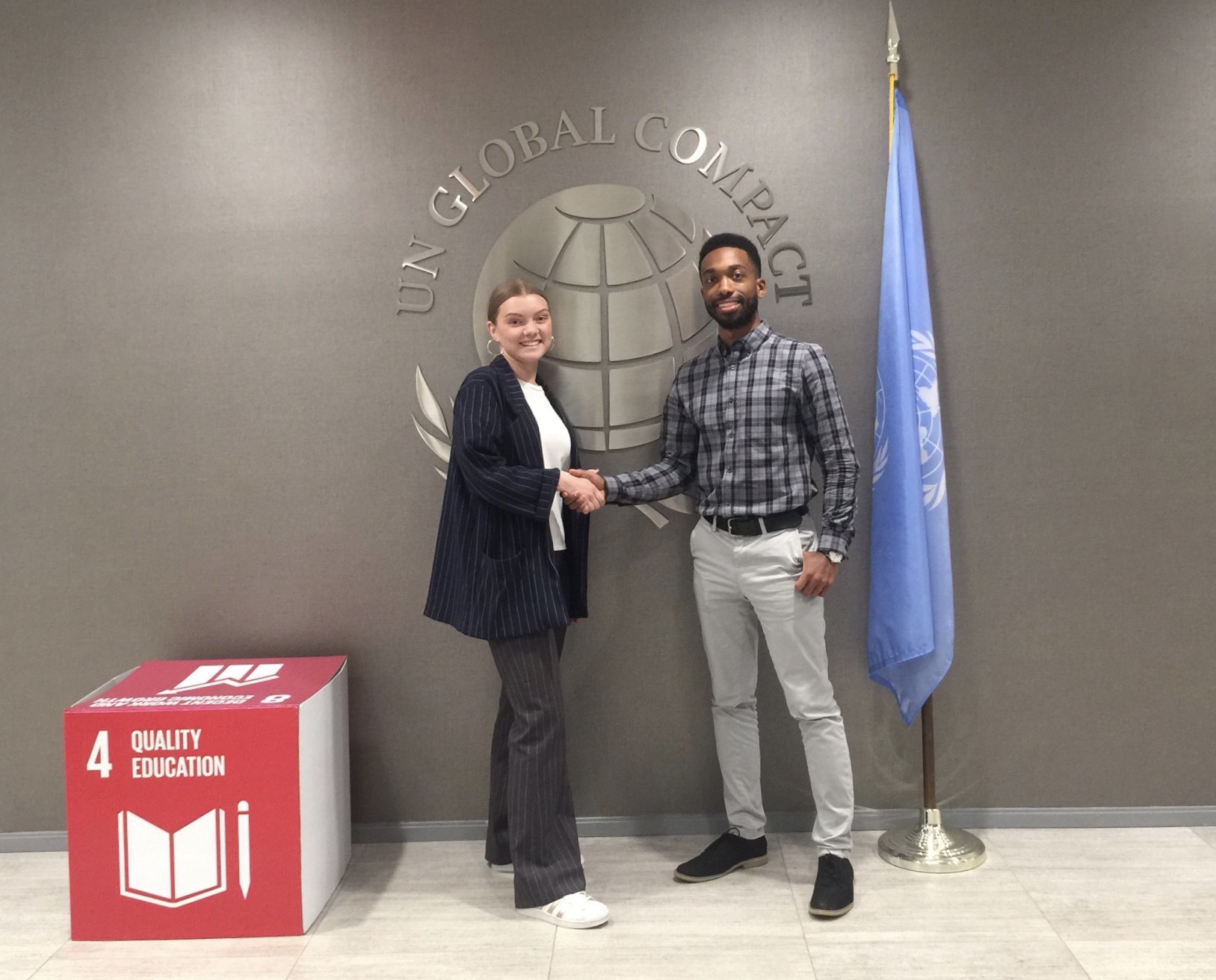SSE student Hedvig Tindberg on her UN/PRME internship in New York
PRME is a UN initiative to inspire responsible management education, research and thought leadership.
Hi Hedvig, what was your motivation to apply to the PRME internship?
I was interested in seeing how other business schools work to incorporate the SDGs into their education. PRME actively works with almost 800 business schools; such a great number of schools that it gives an accurate insight into how future business leaders all over the world are educated to take responsibility. I wanted to get a feeling for how seriously business schools, and companies in PRME’s parent organization the UN Global Compact, treat sustainability. My motivation lay to a large extent in getting a truthful picture of where future business is heading.
What was the best thing about being at PRME?
I am excited to be in a corporate environment that works with challenging issues, and see how they are being tackled. Currently, both public and private sector fail to treat climate change as a crisis for instance.
I was - and am - also eager to learn about concrete projects and initiatives that other business schools are working on. I am convinced that schools can find valuable inspiration in one another.
SSE is a PRME Champion School. What did you bring with you from SSE to PRME?
There is a mindset at SSE that is focused on corporate responsibility. It does not mean that the school completed their work on sustainability - there is still room for a lot more. But in my eyes SSE provides an environment that genuinely motivates awareness and critical thinking. I think that is the result of both the school and students pushing to implement a sustainability-focus in curricula, research and student lead initiatives. I think that all management related education has the potential to provide such an environment.
What are important topics for responsible management education and sustainability business for you personally?
One really important topic to me personally is to involve young people in decision making. Although young people are good at making their voices heard today, there is extremely little involvement of young people in actual decision making. There are clear hierarchies in both public and private sector today that prevent young people from making the impacts that I think they are capable of. Climate scientists are estimating that we have a maximum of ten years to combat climate change. What is the point of educating future responsible leaders, when a 20 year old today likely won’t have an influence in decision making for another 30 years?
What are some ideas and visions that you will bring back to SSE?
I think that SSE has potential to create a greener campus. The school should also start calculating their carbon emissions. One of the PRME schools, University of Ljubljana in Slovenia, were able to decrease their carbon emissions with 46 %. That as a result of analyzing their carbon emissions and shifting towards more sustainable investments.

Hedvig Tindberg and Derrick Sullivan from PRME.